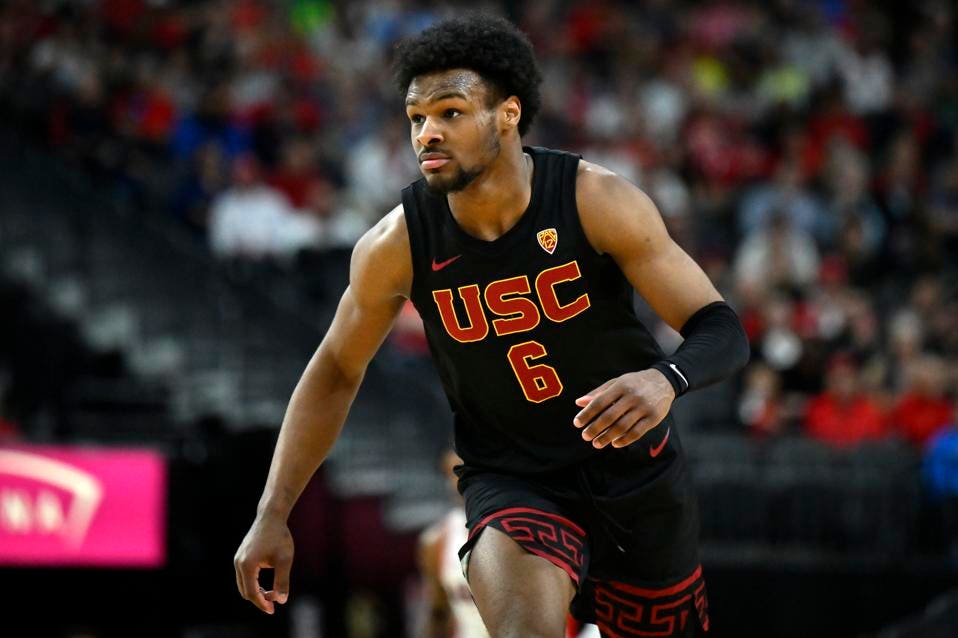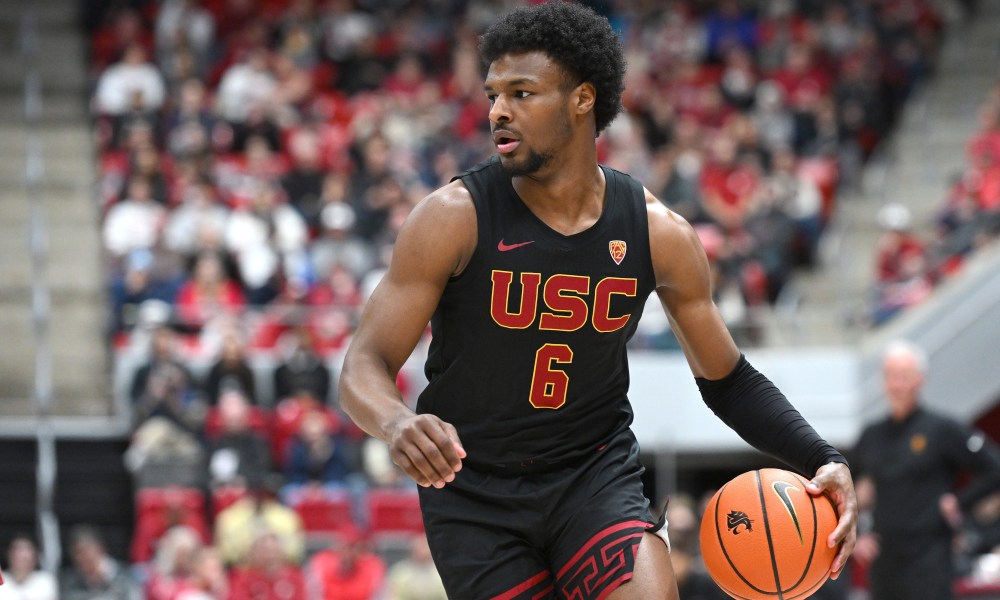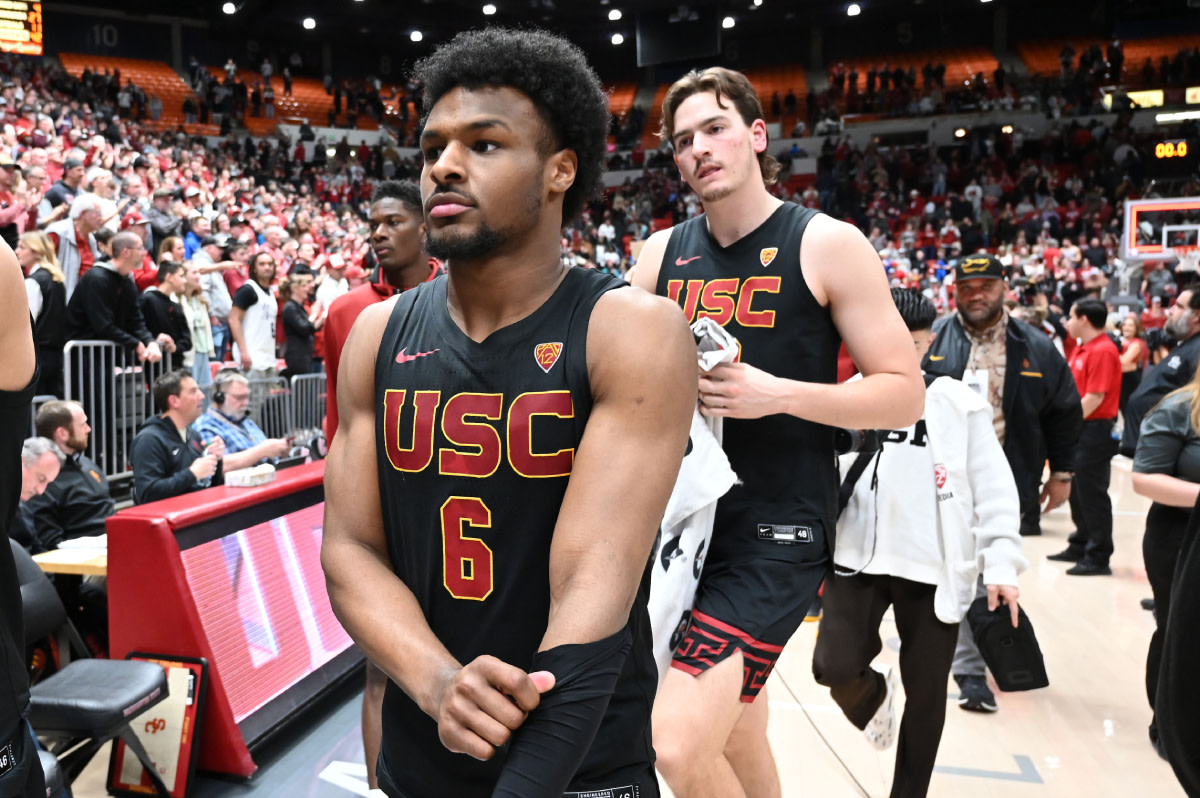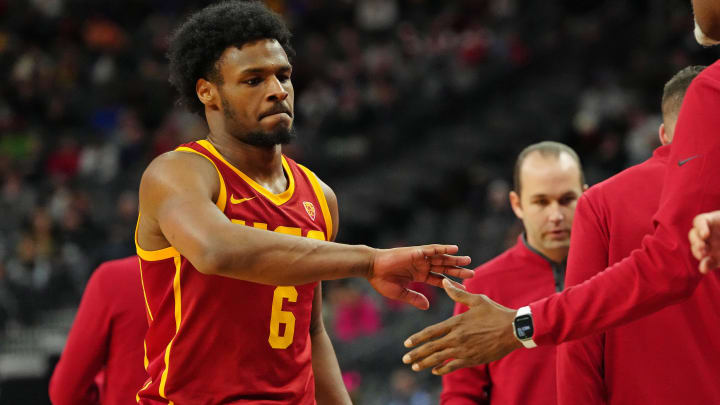Bronny James, the son of NBA legend LeBron James, has entered both the 2024 NBA Draft and the NCAA transfer protocol, indicating that regardless of what happens, USC is unlikely to see one of the world’s most famous teenage basketball players suit up for them again.
For James, entering the draft does not necessarily imply anything. Prospects can always remove their nаme before the draft, retaining their draft eligibility, if they believe they are not receiving positive feedback in workouts or at the combine.
 Of course, a layer of tremendous intricacy knocks James off course.
Of course, a layer of tremendous intricacy knocks James off course.
For years, James has been reported to be playing with his father, LeBron, due to the latter’s near-constant reminder of his desire to play on the same team as his son.
As LeBron remаins one of the league’s most important players and an All-NBA candidate, it stands to reason that some teams may supply James with positive input during workouts solely to retain his nаme in the draft. If that’s the case, a team might theoretically select him highly, with the idea that LeBron will join in free agency to realize his ambition of playing alongside his kid.
 Essentially, there is a scenario at work here in which teams who may not even be interested in James are ready to take him early in the selection for reasons unrelated to him. Because, at the end of the day, if James’ selection leads directly to LeBron’s signing, it is worth foregoing the opportunity to draft someone better.
Essentially, there is a scenario at work here in which teams who may not even be interested in James are ready to take him early in the selection for reasons unrelated to him. Because, at the end of the day, if James’ selection leads directly to LeBron’s signing, it is worth foregoing the opportunity to draft someone better.
Because there are more skilled gamers.
James, who appeared in 25 games for USC as a freshman, averaged 4.8 points, 2.8 rebounds, and 2.1 assists while playing slightly under 20 minutes and shooting 36.6% from the field. James was coming off a cardiac arrest, which is sure to be recorded as a significant red flag in his report, which could explain his low output.
James was coming off a cardiac arrest, which is sure to be recorded as a significant red flag in his report, which could explain his low output.
Regardless of what led his play to be less outstanding than expected, NBA teams aren’t exactly enamored with the notion of a player who is clearly years away from being a real prоspect.
 There is also an ethical quandary to consider.
There is also an ethical quandary to consider.
Choosing a young player based almost entirely on his father’s merits is hardly a tribute to James himself. In fact, it elevates him to the level of nepotism that James has never desired.
For LeBron to potentially influence his son’s selection slot area seems unjust to the younger James, who would undoubtedly prefer to be proven on his own terms.
Of course, nothing is written in stone just yet. James may return to college, transfer to a different school, and spend the next few years honing his skills before entering the NBA – if he ever does.
That seems implausible, given that LeBron is 39 years old and nearing the twilight of his career. The sooner the two share the floor, the sooner LeBron can ride off into the sunset, so it won’t be long before James is completely immersed in the draft waters, arriving in June with a suit and ready to shake the hand of league commissioner Adam Silver.
Whenever it happens, whether this year or later, the situation is awkward and even uncomfortable. The draft is well-known for attempting to take the top players first, and if James remаins in the draft, that method will almost certainly change.